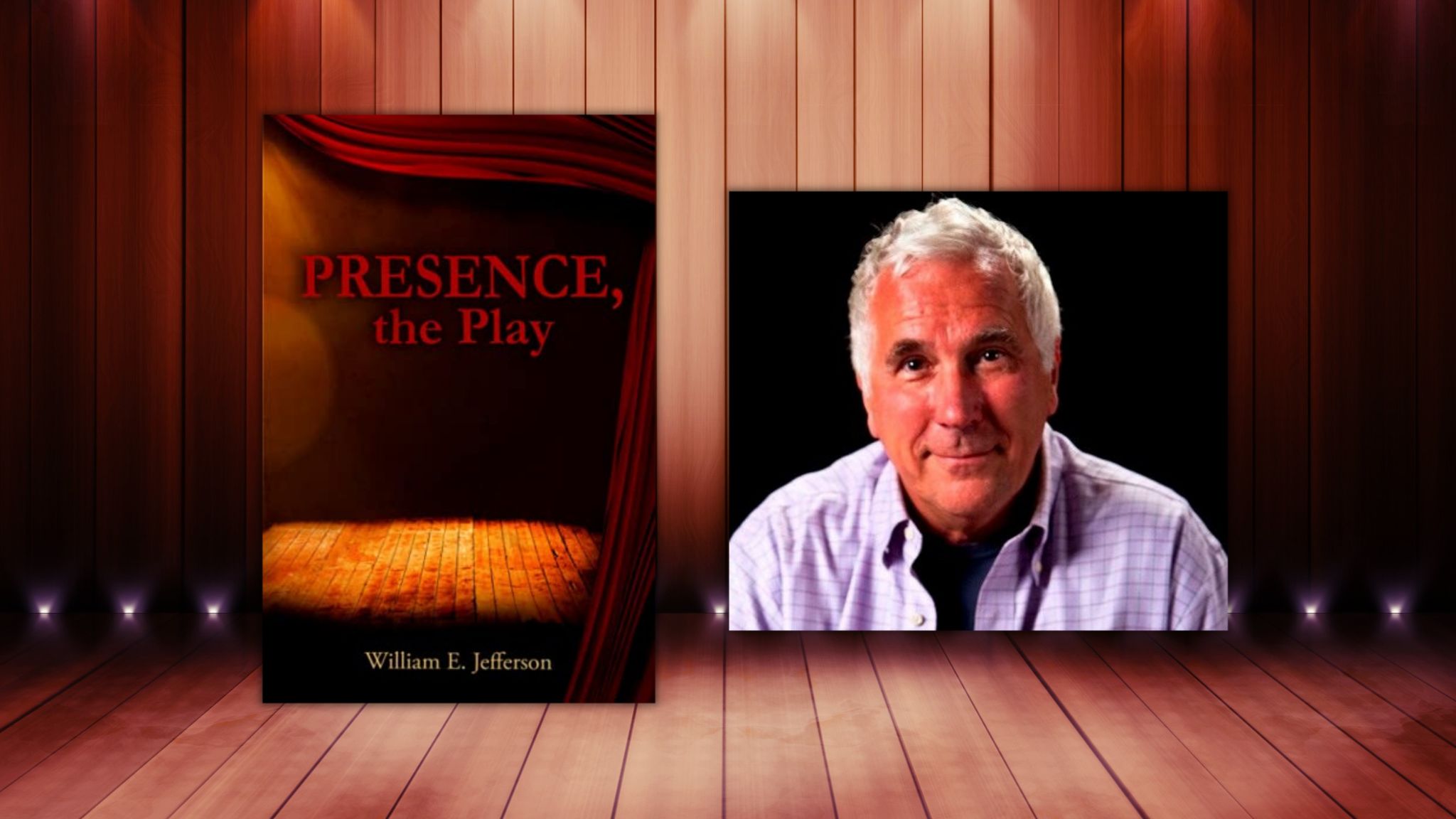
Presence, the Play by William Jefferson offers a meticulously crafted storyline evoking the imaginative prose of J.R.R. Tolkien, the spirited perception of C. S. Lewis, and the dramatic flair of Dante’s Divine Comedy.
On the Isle of Estillyen lives a community of monks, renowned for storytelling. One of the monks, named Script, has written a stage play, titled Presence, the Play. On opening night, a packed crowd eagerly awaits the performance while Script hurries to claim his seat.
Amidst all the buzz, Script has a terrible fall just as the play begins. Medics rush Script to the sanatorium, where he lapses into a coma, in which the true story of Presence, the Play now unfolds. The novel plays out in Script’s comatose state.
In a penetrating interview, William Jefferson lets us into the thinking behind this unique, imaginative work, which is sure to intrigue.
Q: Where did you get the idea for your book?
A: The motivation for writing Presence, the Play was not a spark, or an idea that suddenly pressed upon my mind. Over time, the idea matured until one day I began to view presence itself as an aspirational antidote to the distant mediated connectivity spurred on by social media platforms. It’s been said that “the greatest gift you can give someone is your presence.” I wholeheartedly agree.
Q: What are the key themes you are trying to convey?
- Primacy of personal presence over mediated, digital connectivity
- Image. Chief antagonist Lucifer claims, “Your image can do more for you than you can do for you.”
- Reality of media ecology, and media effects on culture and life
- Importance of literature, the arts and narratives…As Neil Postman said, “Without a narrative, life has no meaning.”
- Reality of cosmic forces, battle of good and evil
- Embracing imagination
- Holding fast to faith and hope, twin essentials for the thickets of life
- There’s no going back
- Dreams—follow them
- Redemption and deliverance
Q: The characters in the book are well defined (and outlined in detail on your website). In each case, did something or someone drive their various personalities?
A: Yes! I chose characters who could speak for themselves — for example, Melehizedek, King of Salem, the mysterious biblical character, who was without lineage and blessed Abraham. A character such as he transcends time and space.
Who better than Melehizedek to guide Script through the corridors of hell? A character of this type cannot be concocted out of thin air.
Witty Script, of course, is the perfect character to inject lines from Canterbury Tales, Dante’s Inferno and the poetry of Poe and Frost.
Q: You have created a fictional “Isle of Estillyen” as the destination for your novels, with a detailed map and quick explanations of various venue points. How is Estillyen character in itself for your work?
A: The Isle of Estillyen, located beyond the Storied Sea, is a microcosm of the world. Characters need a home, a cherished place to protect, which is full of adventure, drama and intrigue. One might say Estillyen has molded the characters that inhabit it. This saying is self-evident to anyone visiting the isle.
Far, far, from everywhere the Isle of Estillyen lies yet mystically near to anyone willing to pass through the ever-present mist that hovers above the Storied Sea encircling the isle. One must be willing to penetrate the mist to experience the joys beyond.
Q: When it comes to your writing, what other authors have been your main inspirations?
A: In terms of style and storytelling, a classical few, such as Tolstoy, Dostoevsky, and Hugo. Shakespeare, too, but on a different sort of stage — his own.
In terms of inspiring my devotion to matters of media and culture, authors of a very different sort come to the fore, such as Neil Postman, Marshall McLuhan, Walter Ong, and Jacques Ellul. In the mix, I should also mention Aldous Huxley, and George Orwell, but not with the same passion attributed to those above.
Q: You’ve created an audio book with an all-star cast. How did that come about?
A: After Presence, the Play was published, somehow I viewed the story incomplete, straitjacketed in lines pressed upon a page, without sound and voice. Thus a search began for someone who could produce a dramatized version of Presence, the Play. Sue Zizza of SueMedia Productions, who teaches sound production to 21 professional actors who take part in the audio adaptation.
Q: What do you hope readers will take away from reading Presence, the Play?
Appreciation for storytelling and for words fashioned in a literary vein, telling a story that possesses relevance for our day and time. If Presence, the Play were a bell, set in a steeple high, it would not ring, but toll.
Q: What is the next project on your plate?
A: I long for seclusion, in a bustling place. That I know. On my plate, no project is set. In my mind, though, many rest.




